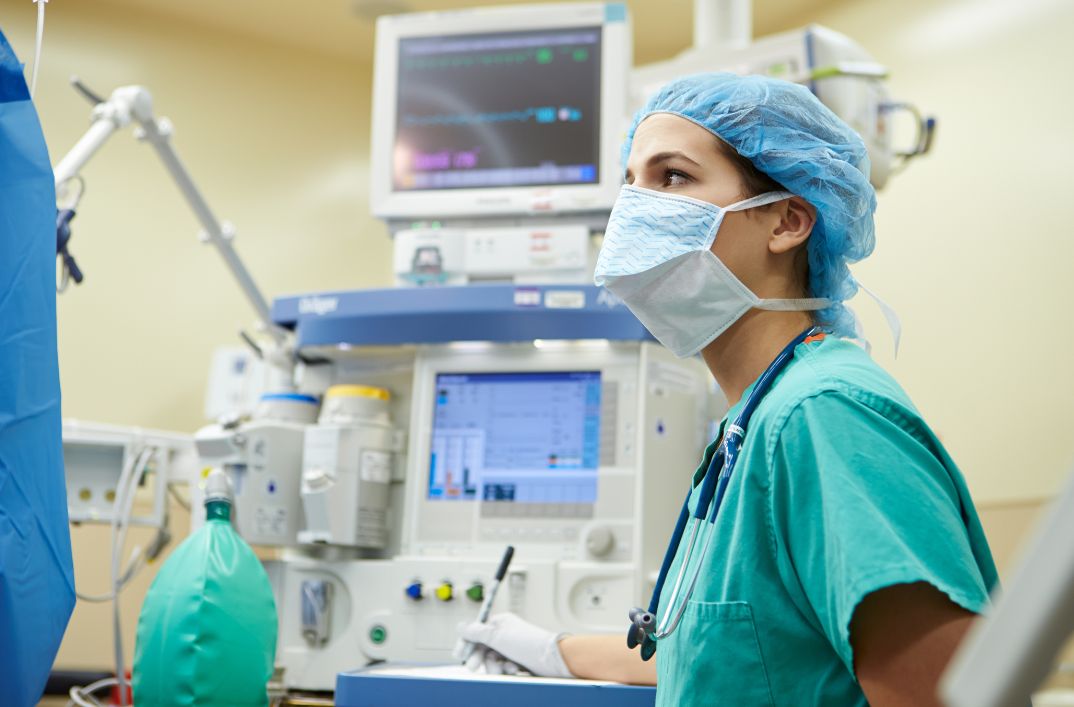by Dr. Matthew Vella
Title:
Neurodevelopmental outcome at 5 years of age after general anaesthesia or awake-regional anaesthesia in infancy (GAS): an international, multicentre, randomised, controlled equivalence trial
McCann, M. E., de Graaff, J. C., Dorris, L., Disma, N., Withington, D., Bell, G., Grobler, A., Stargatt, R., Hunt, R. W., Sheppard, S. J., Marmor, J., Giribaldi, G., Bellinger, D. C., Hartmann, P. L., Hardy, P., Frawley, G., Izzo, F., von Ungern Sternberg, B. S., Lynn, A., Wilton, N., … GAS Consortium (2019). Neurodevelopmental outcome at 5 years of age after general anaesthesia or awake-regional anaesthesia in infancy (GAS): an international, multicentre, randomised, controlled equivalence trial. Lancet (London, England), 393(10172), 664–677. https://doi.org/10.1016/S0140-6736(18)32485-1
Journal:
The Lancet
Author(s):
A consortium of researchers across 7 countries including Australia, New Zealand, UK, USA, Canada, Italy and Netherlands
Type of study:
An international, multi-centre, randomised controlled equivalence trial
Study question and hypothesis:
Does a single exposure to general anaesthesia in early infancy adversely affect neurodevelopmental outcomes?
There would be no difference in neurodevelopmental outcomes between 5-year-old children who had undergone general anaesthesia and those who had undergone awake regional anaesthesia as infants.
Significance:
It seeks to provide evidence to inform decision-making around exposure to general anaesthesia in infancy with regard to the risk of adverse neurodevelopmental outcomes.
Early childhood exposure to general anaesthesia is common (i.e., in the order of millions per year in developed countries), and animal studies suggest exposure can be associated with neurotoxicity – exhibited as neuronal cell death, abnormal behaviour and cognition.
Without clear consensus among prior cohort studies on humans, there is the potential for adverse neurodevelopmental outcomes, and for medical providers and parents to unnecessarily delay or avoid important interventions requiring general anaesthesia.
Participants:
5-year-old children whom – as infants – received general anaesthesia or awake regional anaesthesia for a hernia operation.
Various exclusion criteria were used at randomisation and later follow-up testing, including:
– any acquired / congenital or chromosomal disorder that may affect neurodevelopment
– previous exposure to general anaesthesia or benzodiazepines
– any neurological insult (e.g., history of intracerebral bleed)

How it was done:
Across 28 hospitals, spanning 7 countries, 5-year-old children who had been randomised to receive either general anaesthesia or awake regional anaesthesia to facilitate inguinal herniorrhaphy as infants, had their neurodevelopmental progress examined using formal IQ testing, and additional subtests for attention and executive function.
Findings:
Strong evidence for equivalence in neurodevelopmental outcomes between 5-year-olds who received general anaesthesia or awake regional anaesthesia in infancy. This was consistent across a range of neuropsychological domains. This was consistent with prior findings from PANDA and MASK cohort studies.
Strength:
At time of publishing, this was the only known randomised controlled trial on humans in this area.
Cohort studies completed prior were more prone to errors through confounding, bias, heterogenous populations and heterogenous outcome measures.
Weakness / areas for consideration:
Too early to tell?
IQ at 5-years of age has strong correlation with adult IQ, however other executive functions and social/emotional development occurs later, and would require testing later in life
Longer duration of general anaesthesia?
Infants received less than 120 minutes of general anaesthesia. Prior animal studies show longer duration of anaesthesia is associated with neurotoxicity, so the findings aren’t strictly generalisable to longer procedures (i.e., those requiring >120min of general anaesthesia)
Frequency of general anaesthesia?
As children were exposed to general anaesthesia once, the findings can’t be extrapolated to the safety of repeated / multiple exposures
Using multiple agents?
Infants received Sevoflurane only for general anaesthesia, however in practice other agents are routinely used – both alone and in combination with others (e.g., Isoflurane, Desflurane, Propofol)
Some other sources of bias?
– The study did not mask parents, so their awareness of group allocation may have biased parent-reported outcomes
– Anaesthetists were able to choose their own airway management, ventilation technique, concentration of Sevoflurane, and neuromuscular blocking agent
– The participant population is predominantly male (81-85%)
Take home:
Overall, this trial explores an important clinical question and – from a neurodevelopmental point-of-view – allows us to provide reassurance to parents about the safety of general anaesthesia.
Further reading:
A more recent systematic review and meta-analysis released in 2022 (i.e., Reighard et al. 2022) suggests associations between anaesthetic exposure during childhood and subsequent neurodevelopmental deficits may differ based on neurodevelopmental domain.
Reighard, C., Junaid, S., Jackson, W. M., Arif, A., Waddington, H., Whitehouse, A. J. O., & Ing, C. (2022). Anesthetic Exposure During Childhood and Neurodevelopmental Outcomes: A Systematic Review and Meta-analysis. JAMA network open, 5(6), e2217427. https://doi.org/10.1001/jamanetworkopen.2022.17427